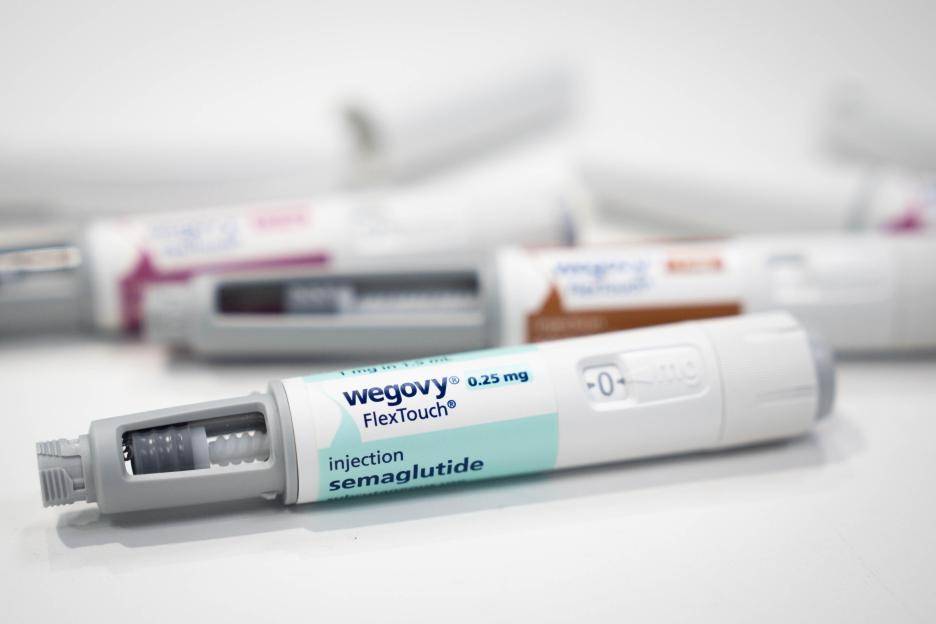A NEW “game-changing” drug could stop the progression of Alzheimer’s disease, early trials suggest.
Scientists say the treatment â called trontinemab â could be the most powerful weapon yet against , as they look into giving the drug to people with no symptoms in the hopes of preventing disease.
 Trontinemab is formulated to bypass the blood-brain barrier to target plaques clogging up brain cells
Trontinemab is formulated to bypass the blood-brain barrier to target plaques clogging up brain cellsPhase two trial results for trontinemab were presented at he Alzheimer’s Association International Conference in Toronto.
Researchers said the drug seemed to clear â the abnormal build-up of proteins around brain cells that cause damage and disrupt function â quicker than other drugs licensed to treat .
Trontinemab cleared out plaques and eliminated visible signs of the the disease within 28 weeks for nine out of 10 patients.
Drug-maker Roche is now conducting another trial to see if plaque clearance also improves patients’ .
The 18-month study includes 1,600 people, the Telegraph reported.
Separate research will examine whether the drug could be given to people without any signs of dementia, just as are used to ward off .
Experts hope the drug could stop patients from developing dementia symptoms at all, if it is given early enough.
They described the findings so far as “very promising”, suggesting that the drug was much more powerful than existing ones while leading to fewer side effects â as it was able to clear plaques better within seven months that other drugs can in 18 months.
Roche’s chief medical officer Levi Garraway said: “Alzheimer’s disease represents one of the greatest challenges in healthcare today and tackling it requires early detection and effective therapeutics.
“Trontinemab is designed to target a key driver of Alzheimer’s disease biology more effectively in the brain.
“Combining new treatment avenues with advanced diagnostics may enable earlier and potentially more effective intervention.
“With plans for phase three trials in both early symptomatic and pre-clinical Alzheimer’s disease, we are advancing with the goal of delaying â and ultimately preventing â progression of this devastating condition.”
Prof Sir John Hardy, the chairman of molecular biology of neurological disease at University College London’s Institute of Neurology told the Telegraph trontinemab could be “game-changing”.
The scientist, who was the first to identify the role of amyloid plaques in Alzeheimer’s, said: “This is absolutely great news.
“It sucks the plaque out of the brain really quickly, much faster than we have seen with lecanemab or donanemab.”
Both are Alzheimer’s drugs approved for used in the UK, which target amyloid proteins in the brain to slow disease progression.
However, neither treatment is offered on the NHS, as the National Institute for Health and Care Excellence (Nice) â in large part because patients need frequent scans to monitor for brain swelling and bleeds.
Prof Hardy added: “There is no doubt [trontinemab] could be game-changing.
“We hope that if we can use these drugs to people early, we can halt the progression of disease, even before people have symptoms.
“Now we need to see the size of the clinical effect.
“These results show it is much faster and safer than previous drugs, which means less monitoring.
“That brings down the cost significantly, it means fewer MRI scans, so that would surely mean it would get approval.”
Trials for and showed the drugs helped clear toxic clumps out of the brain and slow nerve damage caused by Alzheimer’s by 27 per cent and 35 per cent respectively, over the course of 18 months.
But the treatments did present a risk of , meaning patients needed intense monitoring.
Trontinemab appears to be safer and cause fewer side effects, with less than five per cent of patients showing abnormal results on their brain scans.
All of these cases were quickly resolved, researchers said.
The drug â administered by infusion into the bloodstream â also doesn’t need to be given a frequently.
Upcoming trials will examine the impact of giving the drug to patients once a month for six months, then every three months.
Trontinemab has been designed to efficiently bypass the blood-brain barrier, a protective layer of cells that stops harmful substances in the blood stream from attacking the brain and spinal cord.
This barrier can make it hard for many drugs to reach the brain.
Prof Jonathan Schott, the chief medical officer at Alzheimer’s Research UK, told the Telegraph: “We urgently need a range of treatments for Alzheimer’s that are effective and safe for the people affected by this devastating disease.
“Evidence presented at the Alzheimer’s Association conference in Toronto on trontinemab is very promising, showing that the drug can effectively and rapidly clear amyloid from the brain, seemingly with very few side effects.
“We now need to see whether these early stage results carry through to later stage clinical trials, which are planned to start later this year, including in the UK.
“These trials will show whether the drug is not only safe, but impacts on memory, thinking and quality of life.”
He said it was “exciting” that the drug would now be tested in some people without symptoms under the phase three trials.







